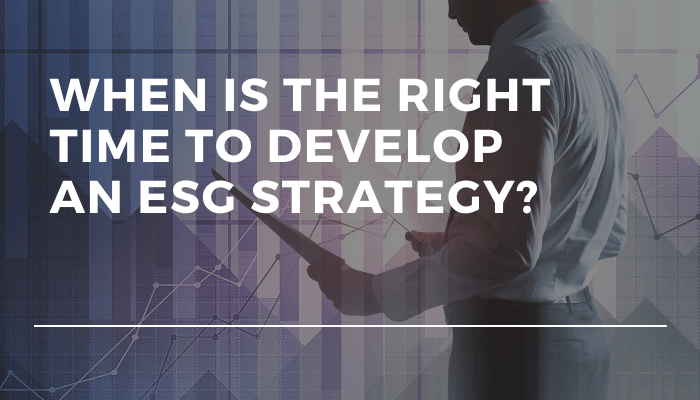
Find out how American Veterans Group can advance your ESG goals
Here are some interesting new numbers just out from
Morningstar.
- ESG funds captured $51.1 billion of net new money in 2020. That’s more than double from the year before, and the fifth consecutive year of ESG fund growth.
- Last year ESG investing accounted for a full one-fourth of all money that flowed into stock and bond mutual funds. Compare that to 1 percent just six years earlier.
If there were any doubts before, I’d say they’ve been obliterated. ESG investing is here to stay, especially as young people increasingly put their money where their hearts are. It’s obvious that the up and coming, next generation of investors care very much about companies that are addressing climate change, racial inequality and injustice, wealth disparity and socially responsible corporate governance.
Another reason to embrace ESG?
We’re hearing that the Biden Administration is giving thought to codifying ESG reporting to keep pace with the European Union which is rolling out some new rules. Put it all together and it’s becoming increasingly difficult – and potentially perilous - for C-suite executives to ignore ESG as a key component of their investor relations strategy.
So, when is the right time for you and your company to take a deeper dive into ESG?
First a little primer on ESG. ESG is the current, favored acronym for sustainable, socially impactful or responsible investing. “E” stands for the environment; “S” for social; and G for “governance.” It’s shorthand for investment strategies, and corporate polices, that are driven by the growing number of people who are serious about investing in companies that are doing the right things and proactively working to make the world a better place.
The growth in ESG investing last year has been attributed to a number of factors, not the least of which are concerns among younger investors that not enough is being done in the public or private sectors to address climate change.
Also, the social outrage and civil unrest that erupted following George Floyd’s murder last summer drew investor and corporate attention to the “S” part of the ESG equation, as did the global pandemic and its universal impact on all our lives.
In other words, ESG takes corporate social responsibility to the next level. And, as evidenced by Morningstar’s numbers, it’s rapidly gaining momentum. That’s why ESG needs to rise now as a core operating principle.
If you’re a cynic, you might say that many companies and their corporate executives have been scared “woke” by the pandemic, recent extreme weather, natural disasters and last summer’s civil unrest. But for many companies, being leaders in developing ESG strategies isn’t something they decided to do just last summer.
The companies that are good at ESG also tend to be the same ones that stand out for delivering quality products and services, treating their employees well, giving back to their communities, and consistently creating value for their shareholders. They’ve been focused on ESG for years because it makes good business sense and because it’s the right thing to do.
Do companies do well because they’re committed to ESG?
It’s like the proverbial chicken and egg question: Do companies do well because they’re committed to ESG? Or are they committed to ESG because they do well? The companies that have proactively embraced ESG are the same ones that are inclined to embrace best practices in all they do.
There are plenty of studies and financial analyses linking quality ESG practices to outperforming operating results. While making solid profits may not be an entirely altruistic motivation for socially conscious investors, it follows that those companies that are committed to making a positive difference in the world also do well for all their stakeholders.
Credit Suisse recently reported that more than 85% of S&P 500 firms now disclose ESG information, up from just 20% in 2013. They recognize that socially conscious investors are an important source of capital that can’t, and shouldn’t, be ignored.
The handwriting’s on the wall. The time to devote time and resources to building out your ESG strategy is now.
If you’re not thinking about ESG you’re falling behind. The time’s come to take the first step toward making this an important part of your business.
It’s the right, and smart, thing to do.


